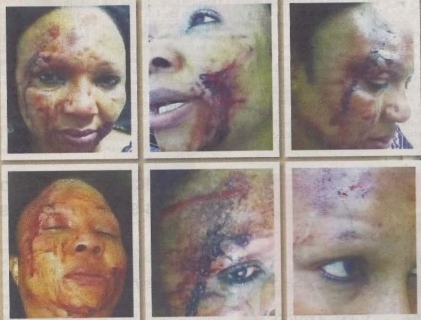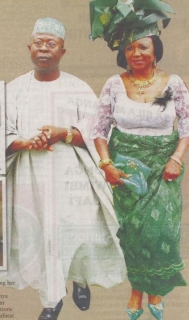House of Representatives member, Godfrey Gaiya (left); Speaker,
Dimeji Bankole (right)
May 23, 2011 09:36AM |
The outgoing Speaker of the House of Representatives, Dimeji Bankole allegedly used the National Assembly accounts as collateral to secure the N10 billion loan which has pitched him against his colleagues in the House.
Yesterday in Benin, Edo State, a House of Representatives member, representing the Zagon-Kataf/Jaba federal constituency of Kaduna State, Godfrey Gaiya, said some members are aggrieved with the leadership of the House and the bank in question because Mr Bankole used the accounts of the National Assembly as collateral to access the loan as a personal fund.
Mr Gaiya added, however, that anybody was free to obtain loans from any bank in the country.
“Thank God he (Bankole) said it was a personal loan; he can collect whatever he wants as long as it is returned to the House. We are angry not only with Bankole, but with the bank,” he said.
“We are simply asking Bankole to sort himself out with the bank so that members’ entitlements are paid before the House is dissolved.”
Neither Mr Bankole nor his media aides were available for comment last night and calls put to his spokesperson, Kayode Odunaro, were unanswered.
The issue of the loan, which makes it hard for the leadership of the House to pay the entitlements of members is at the heart of a restiveness among the lawmakers, some of whom have launched efforts to sanction Mr Bankole. The other leaders of the House have, however, rallied around the speaker.
Eseme Oyibo, the spokesperson of the House, said this was done to ensure that the session ends without rancour.
Fear of openness
Speaking on the choice of the speaker for the next assembly, Mr Gaiya assured that the House would give equal opportunity to all interested representatives. He said the House cannot be intimidated by the Presidency or the leaders of the Peoples Democratic Party (PDP).
Mr Gaiya, who was among participants at a one week retreat organised for lawmakers in Asaba, Delta State, said it was the position of a majority of members of the House of Representatives that the process leading to the choice of who succeeds Mr Bankole be conducted in an open secret ballot voting pattern.
The move, he said, was to pave way for the protection of lawmakers who may be under undue pressure from their state governors in voting a candidate of their choice. According to him, the decision of the House not to support a representative brought by the party for House Speaker was informed by the need to allow fair play and guarantee all members equal opportunity to aspire to the position of Speaker.
“We do not have a favoured candidate of the party or the government, what we want to do as a parliament is to choose anybody whom we consider competent and is capable of leading the house,” he said. “We don’t want to be disturbed by arrangement like in the past which created fear and panic in the minds of parliamentarians when they wanted to vote.”
Mr Gaiya added that in the past, voting was done in the open, in such a way that members had to stand up and say loudly the name of the person they are voting for. He said such openness had always cowed members so much that they vote against their conscience.
“Every member will be accredited and given his ballot paper and voting will be done and counted before everybody,” he said. “We are not toeing the line of the PDP that says we are zoning the position; we do not want to toe the line of the Presidency that says we are favouring a particular candidate. As elected members of the House, we want to be allowed to elect our speaker.”






